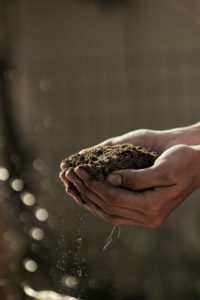
In September 2021, over 100 participants from 30 countries gathered for the Organic World Congress’ two-day Seed Ambassadors event. This year marks the third time that a seed-specific, pre-conference event convened as part of the Organic World Congress. The aim of the event was to build relationships and exchange knowledge within the organic seed and plant breeding community to ensure crop development reflects IFOAM principles and brings maximum benefit to organic and ecological agriculture.
Key goals of the event were to broaden and diversify international representation within the IFOAM organic seed community and engage young seed ambassadors and pioneers to facilitate knowledge sharing, foster mentorship, and build relationships. The program was developed from participant input and each workshop facilitated by participating seed ambassadors from several countries. Event co-hosts included INRAE, ITAB, FiBL, Eco-PB, and Organic Seed Alliance with support from LiveSeed, Chav’ AMAP, and IFOAM.
Many events have pivoted to either a virtual or hybrid format since the beginning of the pandemic. The silver lining of this new format is that access to these important conversations extends beyond travel restrictions. For example, this year’s Organic World Congress was hosted as a hybrid event with onsite participation in Rennes, France, with Organic Seed Alliance facilitating the online component from the United States. Onsite and online participants engaged with each other on the Organic Seed Commons platform in a dedicated Synergy Space for the pre-conference. The ability for attendees to connect and discuss challenges and strategies, and form working groups around these central issues, was inspiring.
Over the two days, a range of workshops were held both onsite in Rennes and online via Zoom. Workshop topics included:
- How to increase the resilience of the agroecosystems with the use of seed diversity
- Strategies to support the growth and success of the next generation of organic plant breeders and seed ambassadors
- Resilient seed systems, community seed banks and networks, cultural diversity in seed systems
- Systems breeding workshops
- Seed commons: preserving farming rights to seed and addressing intellectual property restrictions
The last day concluded with a hybrid broadcast where ambassadors both onsite and online were able to share the findings from each of the eight workshops. Attendees were then able to participate in a group discussion about emerging themes and next steps to reinvigorate an IFOAM seed working group for ongoing collaborative actions. One of the biggest conclusions to come out of the pre-conference was the need for more organic breeding initiatives to meet the demand for locally adapted cultivars — new crops and cultivar types with increased diversity to combat climate change that are developed in compliance with IFOAM breeding methods. Other topic areas included:
- Advocacy, seed policy and seed legislation
- Exchange on knowledge and practices across continents
- Strategies to support regional challenges of organic seed production and breeding
- Networking and awareness for the general public
- Strategies to support the next generation of organic plant breeders and seed ambassadors
Two weeks after the event and conversations continue to take place on Organic Seed Commons. A motion to form a legal task force for the international community of seed ambassadors was made during the last session of the pre-conference and joined by more than 20 participants.
The congress meets formally every three years, though this marks four years since the last meeting due to the pandemic. A primary goal at each Organic World Congress meeting is that the working groups convene to reset the agenda for collaboration of working group priorities for the next three years. The last working group, which met in Istanbul, Turkey, focused on addressing novel breeding technologies and threats to organic integrity. The result was an IFOAM position paper on the topic. This and other information about the IFOAM Organic World Congress Seeds Platform and the working group agendas can be found here.
